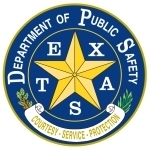Texas CDL License Requirements. What You Need to Know.

Texas CDL Test Answers CLICK HERE
In Texas, the business Motor vehicle protection Act was put into place in the year 1986 as a way to enhance our freeway safeguards. It's goals are to be certain that drivers of commercial automobiles are trained to drive them, and also, to cast off the ones who weren’t first-rate drivers. Before the above-acknowledged act came into being, there were quite a few commercial drivers who drove the vehicles that they were not properly trained to drive and the standards weren't in place. Also, many had not passed through appropriate training to operate them. Even in these states that had protocols in place, drivers weren't necessarily confirmed for the types of autos that they are going to be behind the wheel in. In step with this act, it’s also illegal to have more than one drivers’ licenses for more then one state. If you get your Texas CDL License in Texas, you can not have another one from a different state. At the moment, all the states are related to a national database in order to examine driver histories.
So to be eligible for an Texas CDL, you must be competent of studying and talking English as a minimum. You must also be able to read the street indicators, have proper driving experience, and keep up a correspondence with the public while on the road. For all folks that want to receive an Texas industrial driver's license, they’ll have to take one or more endorsements, depending on the specific class and license they wish to go for. Some of the exams in Texas are comprised of: Air-Brakes, General Knowledge, Tankers, Doubles/triples, Hazardous Materials, Passenger Transport, and School Bus.
Different types of test are required to obtain the license of Class A, Class B or Class C. The vehicles included in all three classes can also vary. In Class C, the driver gets the permit to transport more than 16 persons in the vehicle. The number includes the driver. You have only a year to complete all the remaining portions of the CDL process, e.g., road, pre-test and skills test, after you get the laminated CDL by mail. Another important thing that you must take into consideration is that, just because you undertook the CDL Learners Permit test at your local DPS it does not mean that you can go back to the same DPS to take the skills test. Only certain DPS offices in Texas are allowed to conduct the skills test.
There are certain limitations of the people who cannot be issued the Texas license. These are:
- People who are under the age 16 years.
- Anyone whose driving rights or privileges have been suspended or revoked in any state for any reason.
- Anyone who is a habitual drunkard or a drug addict.
- Terrorism
- Murder
- Assault with intent to murder
- Espionage
- Sedition
- Kidnapping or hostage-taking
- Treason
- Rape or aggravated sexual abuse
- Extortion
- Robbery
- Arson
- Bribery
- Smuggling
- Immigration violations
- RICO (Racketeer Influenced and Corrupt Organizations Act) violations
- Unlawful possession, use, sale, distribution, or manufacture of an explosive device, firearm, or other weapon
- Distribution of, intent to distribute, possession, or importation of a controlled substance
- Dishonesty, fraud, or misrepresentation, including identity fraud
- Crimes involving a severe transportation security incident
- Improper transportation of a hazardous material
- Conspiracy or attempt to commit any of these crimes
Applying for Your CDL
Before you begin the process of applying for a commercial driver's license (CDL) from the Texas Department of Transportation's Department of Public Safety (DPS), use the information below to see if you truly need a Commercial Drivers License. You'll only need a CDL if you're driving a large vehicle for commercial use, either for you or your employer, or as a volunteer.. Many large vehicles, such as mobile homes and vehicles that haul a boat, don't require you to obtain a CDL.
The Texas CDL is based on weight to drive it, you will need to know the gross vehicle weight rating (GVWR) and check the list:
- If you will drive (truck and trailer) also known as a combination vehicle whose trailer has a GVWR of more than 10,000 pounds and whose total GVWR with the truck is 26,001 lbs or more, you will need a Class A Commercial Drivers License.
- If you will drive a vehicle whose GVWR is 26,001 pounds or more, you will need a Class B CDL. With the Class B license, you can also tow a trailer whose weight does not exceed 10,000 pounds.
- If you will transport hazardous materials or 16 or more people (including the driver) and your vehicle does not otherwise meet the definitions of a Class A or B vehicle you will need to acquire a Class C license.
What's the difference between an interstate CDL and an intrastate CDL?
Texas offers both interstate and intrastate CDLs. The requirements for intrastate (Texas-only) licenses are less strict than the federally controlled interstate licenses. Intrastate drivers do not need to speak English, and the medical requirements are less stringent. You can get an intrastate CDL at the age of 18 years old. To be licensed to drive a commercial vehicle across state lines, however, you need to be at least 21 years old. Drivers with some disabilities may still qualify for a CDL at the intrastate level. There are Limb Waiver (Form (CDL-37) and Vision Waiver (Form CDL-36) packets available to allow exemptions for drivers missing a limb or unable to fully meet the vision testing requirements.
Office hours and testing times vary, so it's a good idea to double-check the schedules at your preferred and find out whether you need to make an appointment for the on-road skills test.
Texas CDL Test Answers CLICK HERE
